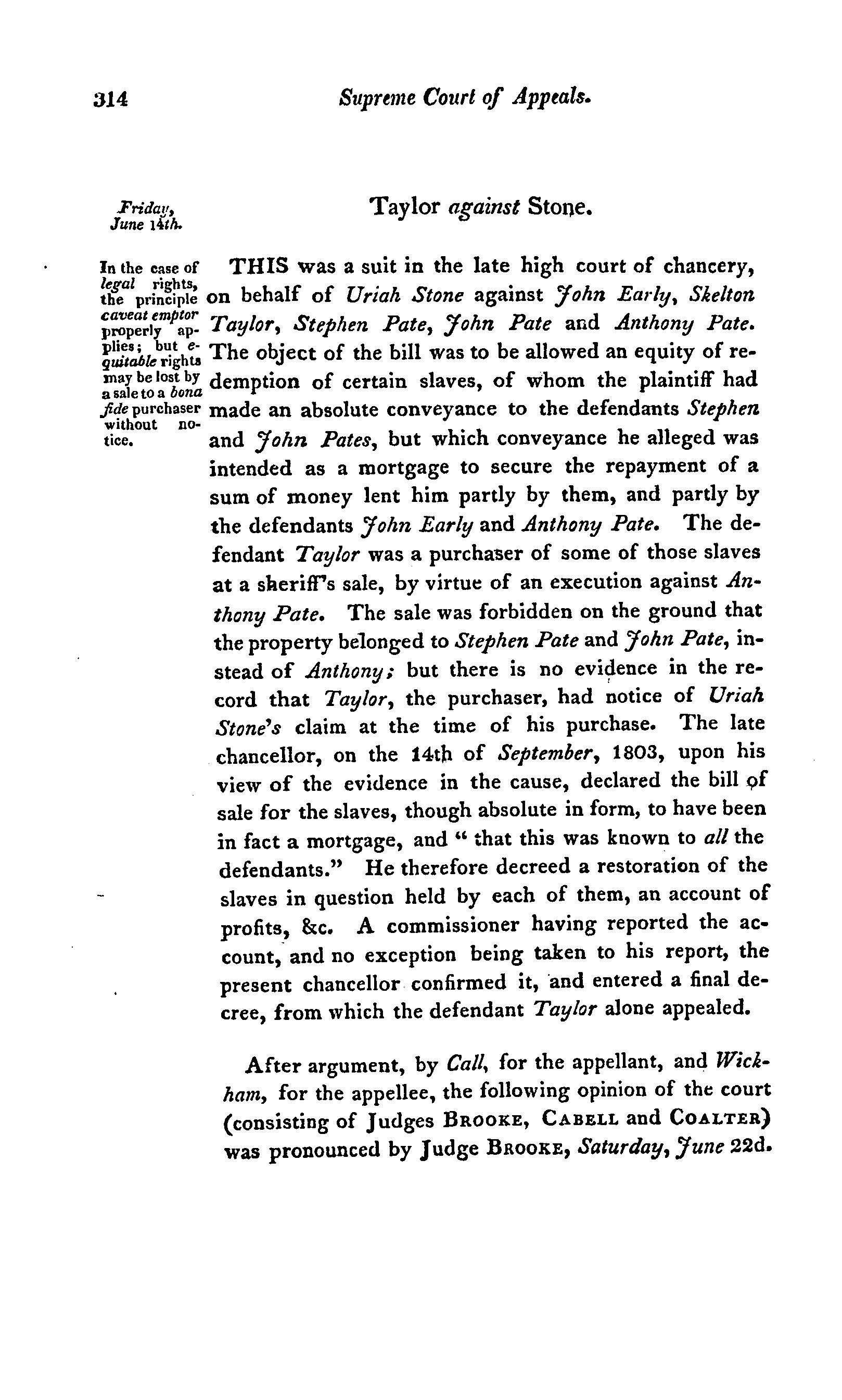Taylor v. Stone

In Taylor v. Stone, 16 Va. (2 Munf.) 314 (1811),[1] the court determined whether equitable rights could be lost to a bona fide purchaser without notice.
Background
Uriah Stone sued John Early, Skelton Taylor, and Stephen, John, and Anthony Pate in the High Court of Chancery to recover his slaves. Uriah made an absolute conveyance of his slaves to Stephen and John Pate as a mortgage for money he borrowed in part from them and in part from John Early and Anthony Pate. Uriah also named Skelton Taylor as a defendant because he purchased Uriah’s slaves at a sheriff's sale Anthony executed. In court, Uriah argued the sale was forbidden because the slaves were a mortgage not a conveyance. Uriah also argued that the sale was invalid because the slaves were conveyed to Stephen and John, not Anthony. In his defense, Skelton argued that he had no notice of Uriah's mortgage when he purchased the slaves, making the sale valid.
The Court's Decision
In September 14, 1803, Chancellor Wythe declared the bill of sale for the slaves, though absolute in form, to have been in fact a mortgage, and “that this was known to all the defendants.” Wythe decreed the defendants return the slaves and make an account of the slaves' profits. After a commissioner reported the account, Wythe confirmed it and entered a final decree. The Court of Appeals reversed the decision and dismissed the case.
See also
References
- ↑ William Munford, Reports of Cases Argued and Determined in the Supreme Court of Appeals of Virginia, (New York: I. Riley, 1814), 2:314.